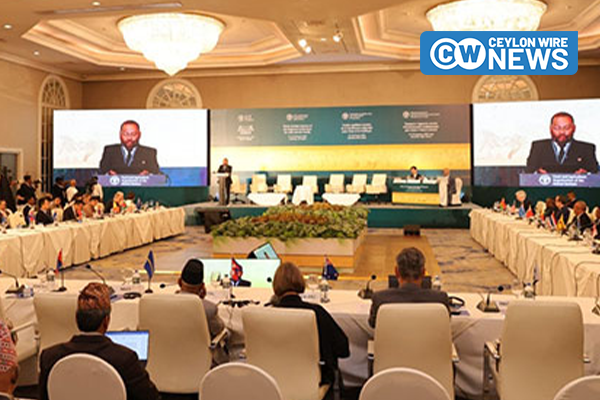The Food and Agriculture Organization of the United Nations (FAO) reported today that forty countries from the Asia-Pacific region have collectively emphasized the urgency of transforming agrifood systems to secure food for future generations. This consensus was reached at the conclusion of the 37th Session of the FAO Regional Conference for Asia and the Pacific (APRC37) in Colombo, hosted by the Government of Sri Lanka.
Marking a significant event, the conference witnessed the physical presence of delegates from the majority of the forty participating countries, including approximately 20 government Ministers. This in-person gathering, the first since 2018, symbolizes the attention required to recover from pandemic-related disruptions to food production and distribution across the region.
The global pandemic, coupled with shortages of food, feed, fuel, fertilizer, and access to finance, led to a substantial increase in food prices. Recognizing this as a ‘wake-up call,’ stakeholders highlighted the necessity of prioritizing global efforts to ensure food affordability, availability, and agricultural production.
Jong-Jin Kim, FAO’s Assistant Director-General and Regional Representative for Asia and the Pacific, stressed the pivotal role of food and agriculture in the global development agenda. He urged a comprehensive approach, involving not only Ministers for Agriculture but also key partners from various sectors like Welfare, Women, Children, Environment, Science, Education, Trade, Investment, and Finance.
Kim emphasized the importance of embracing science and technology in the evolving agrifood sector, urging the region to lead in agriculture, food, and nutrition. He highlighted the region’s role as agents of change, echoing the sentiments expressed by FAO Director-General, Dr. QU Dongyu, in the conference’s opening statement.
The final report to the APRC outlined key challenges in the region, emphasizing the need for sustainable productivity growth, innovation, and addressing resource limitations, climate change risks, and population growth. It stressed the significance of transparent, predictable, open, and fair markets for food security, advocating for an effective multilateral trading system.
The report also underscored the importance of digital innovations, blended finance, private sector engagement, and highlighted specific issues such as local food systems, low carbon practices, water management, value chains, and global standards for biosecurity and food safety.
Moreover, the conference recognized the Asia-Pacific region’s leadership in capture fisheries and aquaculture, urging a sustainable transformation towards enhancing food and nutrition security, livelihoods, and women’s participation along the value chain. It welcomed FAO’s Blue Transformation vision, aiming to amplify the role of fisheries, aquaculture, and aquatic food value chains for more nutritious food and resilient livelihoods in the region.









